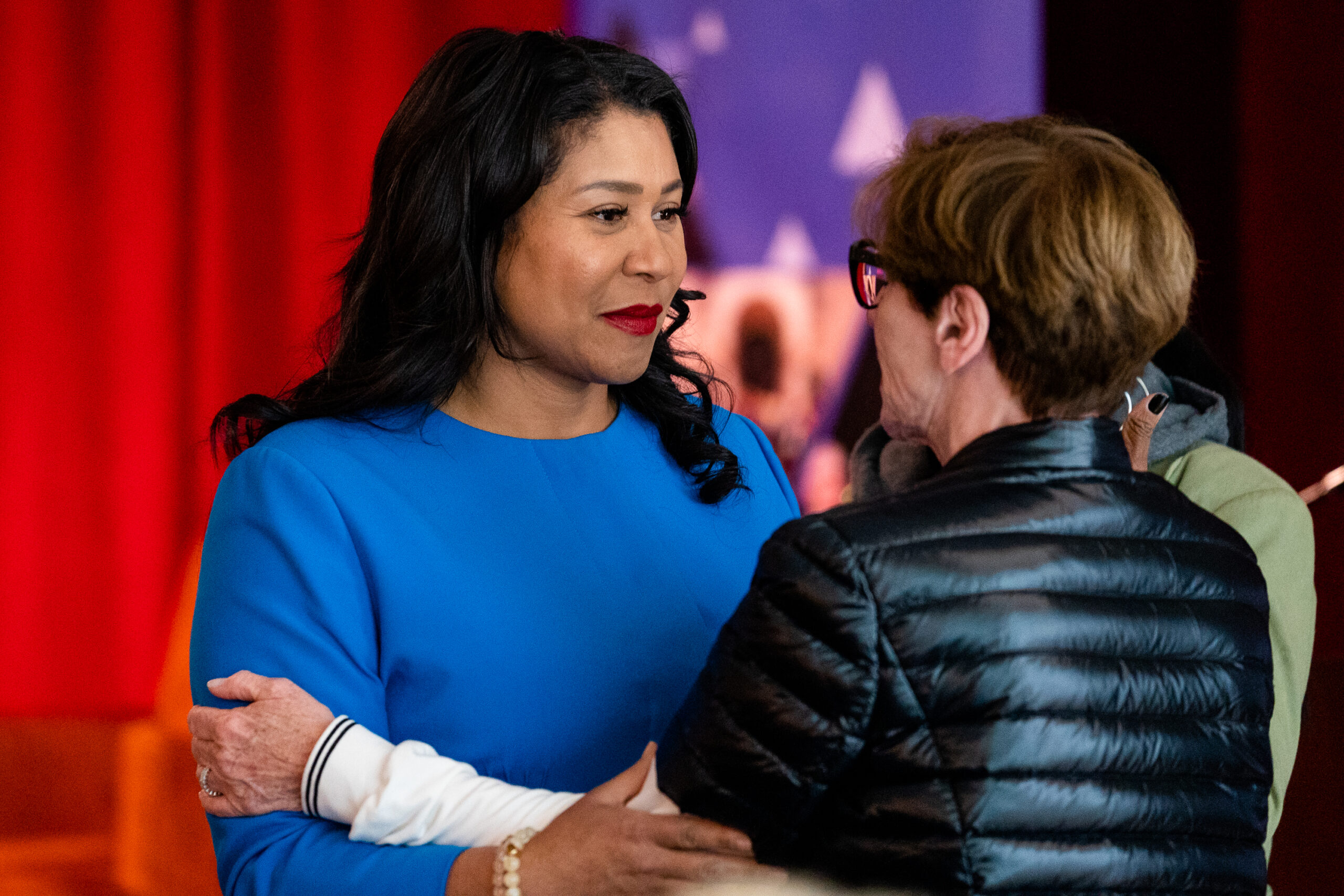San Francisco authorities will force people taken into custody for drug use or possession into a specialized court after a second arrest.
Mayor London Breed announced the policy change by the District Attorney’s Office in a conversation Wednesday evening at the San Francisco Jewish Community Center. Brooke Jenkins, whom the mayor appointed district attorney last summer, previously said that the city would force people into the drug court after five arrests, and then dropped that number to three in December.
The District Attorney’s Office confirmed the change in policy to two arrests for drug use and/or possession after receiving community feedback. People charged a second time will be placed in the Community Justice Center court system starting July 3.
“We would be derelict in our duty to protect public safety if we do not utilize every means available to us in our mission to disrupt open-air drug markets by holding drug dealers accountable and working to steer users into care,” Jenkins said in a statement.
On Wednesday, Breed said law enforcement is focusing the majority of its efforts to combat trafficking and drug use in the Tenderloin neighborhood and South of Market area. She noted that over a 10-day period, police arrested 58 people for drugs and 28% of those people had existing warrants for their arrest. Only 8% of the people arrested were San Francisco residents, Breed added, and every one of the people arrested for the first time refused addiction treatment services.
“The point is, we can’t keep doing what we’re doing,” Breed said.
The Community Justice Center includes a courtroom and social-service center that can refer people to drug treatment, mental health programs, support groups, counseling, career development and job training.
Pressure has been building on the mayor, police and prosecutors to address the drug crisis as the city is on pace to set a record number of overdose deaths. Polling shows San Franciscans are fed up, and a public hearing with the mayor and Board of Supervisors on the topic last month at United Nations Plaza turned into a volatile spectacle. Breed’s allies recently mounted an aggressive ad campaign to pressure the mayor and supervisors to redirect funds in the budget toward recovery programs and investments in law enforcement to better combat open-air drug markets.
Many city officials are acknowledging that progress needs to be made ahead of the Asia-Pacific Economic Cooperation (APEC) summit in November, when President Joe Biden and other heads of state will visit the city.
Breed’s comments Wednesday were part of a conversation to discuss her recent Sister City trip to Israel. During the trip, Breed talked about hearing the siren of the Iron Dome defense system being activated during an attack on Tel Aviv. The system is designed to counter short-range rockets and large artillery shells.
The mayor compared the situation to her own experience growing up in Plaza East, a public housing project in San Francisco’s Western Addition neighborhood that was once called the O.C., short for “Outta Control” due to frequent gun violence.
“I was sitting outside talking to the mayor [of Tel Aviv] and heard [the siren], and then she’s like, ‘Uh, there it goes.’ And I was like, ‘Yeah, there it goes,’” Breed said. “And in my mind I was thinking, ‘This is very familiar to me.’”
Breed also talked about ideas she gleaned from visiting Haifa, San Francisco’s sister city in Israel, which once had its own issues around an abandoned Downtown area. San Francisco has suffered a huge loss in foot traffic as a result of the pandemic, with many storefronts closing and office towers being hollowed out by the shift to remote work.
The mayor’s hosts in Haifa showed her a building that had been converted into housing for college students, an idea that has gained some traction here in the city.
“I don’t know if this was a particular plan, but once they started to populate the Downtown area with students, all of a sudden there were restaurants, cafes, bars and a place for nightlife. It really had a profound impact on Haifa,” Breed said. “And I thought to myself, ‘Hmm, UCSF can go to Westfield [mall], that might be something really cool, right? Don’t they need more lab space?’ Anyway, just a big thought in my head.”
Experts have said the mayor’s idea to convert Westfield’s San Francisco Centre on Market Street—which is losing its anchor tenant Nordstrom this summer and recently saw its movie theater shutter—into lab space is probably infeasible.
Near the end of the evening, Breed was asked how the community could help her achieve her goals and support San Francisco. The mayor didn’t miss a beat.
“Give me a new Board of Supervisors,” she said.
Breed and six of the 11 supervisor seats are up for election in 2024.
